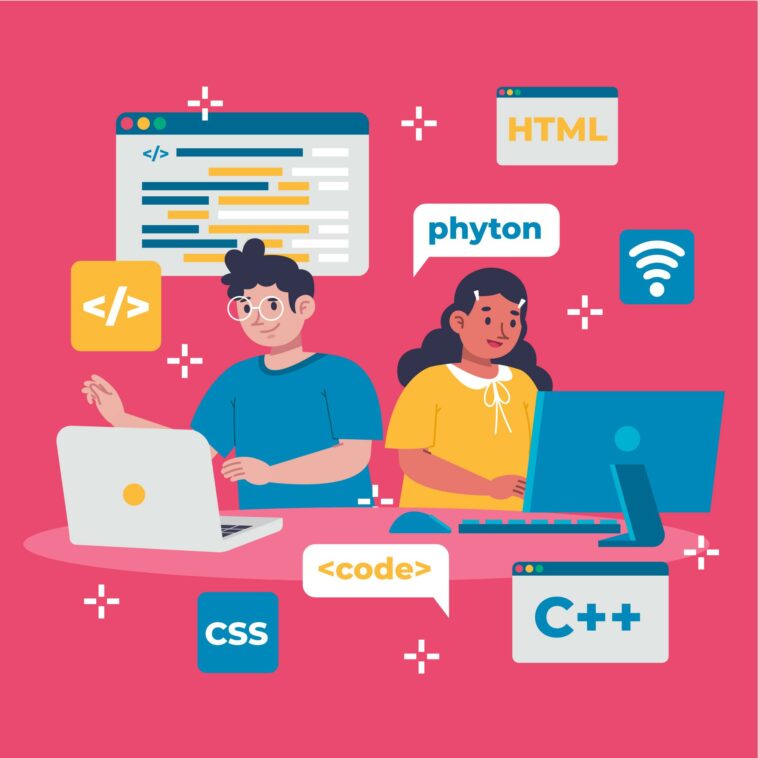Python, renowned for its simplicity and versatility, stands as a preferred choice for beginners and experts alike in the programming world. While learning Python can be straightforward, mastering it requires smart strategies and insider hacks. This comprehensive guide is designed to unlock the full potential of Python programming, offering tips, tricks, and hacks that streamline the learning process and elevate your coding skills.
Getting to Grips with Python: Starting Right
Embarking on your Python journey requires a solid foundation. Begin with understanding Python’s syntax and structure, which is intuitive and beginner-friendly, making it an ideal starting point for aspiring programmers.
Python Programming Hacks for Beginners
- Embrace the Pythonic Way: Pythonic code is more than syntax; it’s about adopting the philosophy of simplicity and elegance that Python advocates.
- Master Python Libraries: Python’s strength lies in its vast array of libraries. Get comfortable with libraries like NumPy for numerical tasks, Pandas for data manipulation, and Matplotlib for data visualization.
- Interactive Python Shells: Tools like IPython and Jupyter Notebook offer an interactive coding environment, ideal for experimentation and learning.
Effective Learning Resources and Communities
Tap into the wealth of online resources and communities. Websites like Stack Overflow, GitHub, and Python.org forums are treasure troves of information, tutorials, and community advice. Participate in discussions, ask questions, and immerse yourself in the Python community.
Practical Projects: Learning by Doing
One of the most effective ways to learn Python is through hands-on projects. Start with small, manageable projects and gradually increase complexity. Practical application solidifies theoretical knowledge and enhances problem-solving skills.
Understanding Advanced Concepts
As you progress, delve into more complex Python concepts. Topics like object-oriented programming (OOP), data structures, algorithms, and threading are crucial for advanced Python proficiency.
Python for Data Science and AI
Python’s role in data science and AI is monumental. Familiarize yourself with AI and machine learning frameworks like TensorFlow and Scikit-learn, which open up vast possibilities in these fields.
Optimizing Python Code: Efficiency Matters
- Code Profiling: Use Python’s profiling tools to identify bottlenecks and optimize your code for performance.
- Understanding Algorithm Complexity: Focus on writing efficient algorithms that reduce execution time and resource consumption.
- Write Clean and Modular Code: Maintainability and scalability are key. Write code that is easy to understand, modify, and extend.
Debugging and Testing: Ensuring Code Quality
Develop robust debugging and testing skills. Utilize Python’s debugging tools and write comprehensive tests using frameworks like PyTest to ensure your code is error-free and behaves as expected.
Python in Web Development
Explore Python’s application in web development with frameworks like Django and Flask. These frameworks simplify tasks like database management, routing, and session handling, making web development more accessible.
Automation with Python
One of Python’s greatest strengths is its ability to automate repetitive tasks. Writing simple scripts to automate mundane tasks can save time and enhance productivity.
Staying Updated: Following Python’s Evolution
Python is continually evolving. Stay updated with the latest trends, best practices, and updates in Python to keep your skills relevant. Follow Python blogs, podcasts, and join Python meetups or webinars.
Contributing to Open Source: Learning Through Collaboration
Contributing to open-source Python projects can be a significant learning experience. It provides exposure to large-scale projects, coding standards, and collaborative development processes.
Python Coding Challenges and Competitions
Participate in coding challenges and hackathons. Platforms like HackerRank, CodeChef, and LeetCode offer Python challenges that range from beginner to advanced levels, helping to sharpen your problem-solving skills.
Python and Networking
Understanding how Python can be used for networking tasks, like building servers, clients, or handling various network protocols, can be a valuable skill, especially in fields like system administration and cybersecurity.
Python and the Internet of Things (IoT)
Python’s simplicity and versatility make it suitable for IoT applications. Explore how Python can be used to develop and manage IoT devices and systems.
FAQs on Learning Python Programming
- Q: How long does it take to become proficient in Python? A: The learning curve varies, but with consistent practice, fundamental proficiency can be achieved in a few months.
- Q: Can Python be my first programming language? A: Absolutely! Python’s readability and simplicity make it an excellent first language.
- Q: Is Python suitable for building large-scale applications? A: Yes, Python is capable of scaling for large applications, especially when combined with the right tools and frameworks.
Conclusion: Charting Your Path in the Python Universe
Python is more than a programming language; it’s a gateway to a vast universe of technological possibilities. Whether you’re a budding programmer or looking to expand your skill set, Python offers a path that is as rewarding as it is enlightening.
Final Thoughts
In conclusion, mastering Python is a journey of continuous learning and application. With the right approach, resources, and perseverance, anyone can unlock the vast potential of Python programming, opening doors to exciting opportunities in the tech world.



